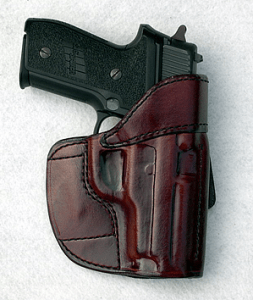A recently released study by Mark Gius, a Quinnipiac University economist, provides data that suggests a distinct relationship between the number of concealed carry permits issues in a state and the number of murders within that same state. The study is called “An examination of the effects of concealed weapons laws and assault weapons bans on state-level murder rates” and was recently published in the Journal of Applied Economics Letters.
The abstract reads as follows:
“The purpose of the present study is to determine the effects of state-level assault weapons bans and concealed weapons laws on state-level murder rates. Using data for the period 1980 to 2009 and controlling for state and year fixed effects, the results of the present study suggest that states with restrictions on the carrying of concealed weapons had higher gun-related murder rates than other states. It was also found that assault weapons bans did not significantly affect murder rates at the state level. These results suggest that restrictive concealed weapons laws may cause an increase in gun-related murders at the state level. The results of this study are consistent with some prior research in this area, most notably Lott and Mustard (1997).”
Although you can’t read the entire study without being a paid member of the Journal where it was published, the data seems to confirm the theory that CCW permits equal a reduction in crime. Personally, I never believed otherwise. Looking at things from the criminal mindset, I’d be a little more cautious choosing victims knowing that a certain percentage of the population has a CCW permit. The higher the percentage, the more likely I’d think twice about the crime.
The CCW concept works and it works well.

